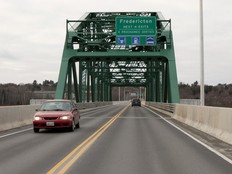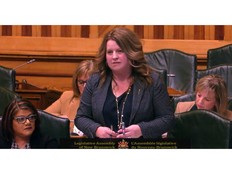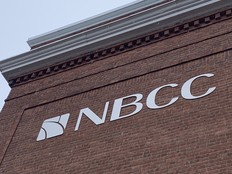SOLUTIONS
BALLOT BOX BLUES, Part 5: How to move beyond the daily ‘bickerfest’ and re-engage voters
Article content
It took a comedian to break through the loud pageant of partisan hysteria, and tell the American media to clean up their act.
``What you do is not honest. What you do is partisan hackery,'' said Comedy Central's Jon Stewart, admonishing the hosts of Crossfire, the CNN political slugfest, during his famous appearance there in 2004.
``You're doing theatre, when you should be doing debate,'' Stewart said. ``Stop, stop, stop hurting America.''
Three months later, Crossfire was cancelled by the chastened TV executives at CNN.
Canada's media have not had a similar watershed moment, but critics say the faults of political punditry and journalism in this country are much the same: too much meaningless drama ( ``who's up! who's down!''); an obsession with conflict and minor scandal; and too much partisan bluster, particularly on television.
``Tonight you can go home and turn on the political talk shows and all you see is personal attacks, negativity and conflict,'' says Donald Savoie, a political scientist at the University of Moncton.
``Then they bring on representatives of political parties to debate the issues, but all they do is tear down the other guy, and build up their own guy. They still do it on CNN, and we do the same thing in Canada.''
Barack Obama made a radical suggestion last fall on his way to winning the White House. He said politicians and their party surrogates should stay away from the TV political talk shows.
``The job of an elected official,'' he said, ``is to solve problems, deliver for the people. Don't spend all your time bickering, stay off the cable news shows.''
That simple notion, said Slate.com, an online Washington newsmagazine, ``will seem like a fabulous idea to anyone who has watched the daily bickerfests on cable news, and felt the accompanying compression of their soul. ''
What other novel ideas are there - beyond better media - for fixing our fractured democracy, re-engaging voters, and bringing citizens and politics together again?
Outlaw attack ads:
In Britain and other parts of Europe, paid political advertising is banned from television, a rule that removes some of the heat, vitriol and nastiness from campaigns and helps to keep voters' attention on policy. Instead, parties are given free time on television to explain their election platforms or extol the virtues of their leaders.
Jonathan Rose, a political scientist at Queen's University, says even if Canada doesn't ban political ads, ``we could civilize the process by limiting attack ads.''
As he explained in a 2006 article in Policy Options magazine: ``Finland and Israel both have restrictions on the content of their ads.
In Finland, comparative or critical party ads are allowed, but negative ads targeted at a leader are prohibited . . . in Israel, military images are prohibited.''
Such rules would have eliminated many of the most offensive TV ads run in Canada's last federal election, including the militaristic, anti-Conservative ad run by the NDP in Quebec.
Eliminate party subsidies:
The $1.95 that Canadian parties received from taxpayers for every vote they earned in the last election is a touchy issue.
Opposition parties erupted in anger when Prime Minister Stephen Harper tried to cancel it last month.
Tom Flanagan, the Calgary academic who ran Harper's 2004 campaign, says public financing of political parties makes them dependents of the state - not a healthy arrangement in a free country. He says he prefers the U.S. system, in which taxpayers can check a box on their tax returns, directing a small amount of money to a party of their choice.
Others, including the Public Policy Forum, an Ottawa think-tank, say if subsidies remain, parties should be required to spend of portion of them on policy development.
The public advocacy group Democracy Watch also says central party offices shouldn't be allowed to hoard the money, but forced to share a certain percentage with local riding associations across the country.
Enforce decorum in Parliament:
Party leaders always promise to restore civility in the House of Commons, but never do. As a result, the Speaker is often blamed for letting MPs run rampant. But former NDP member of Parliament Bill Blaikie, who served as deputy Speaker, says the Speaker's power to discipline MPs has eroded over the years, and should be restored.
For example, 25 years ago the Speaker was free to punish rule-breaking members by choosing not to recognize them on the floor of the House. Today in question period, he has no such disciplinary power; he has become captive to the prepared lists - dictating who will speak when - handed to him in advance by the party whips.
Create an honesty-in-politics law:
Tired of watching politicians make promises they never keep, utter false statements, or switch party allegiances after elections, Democracy Watch is proposing a political ``hot-air tax.''
``Politicians have passed laws requiring taxpayers, welfare applicants, immigrants and most professionals to tell the truth when they fill out government forms,'' the group says, so why shouldn't elected officials be held to the same standard?
It wants the federal ethics commissioner to be empowered to investigate public complaints, and impose fines on politicians for saying one thing and doing another.
Make every vote count:
Canada's first-past-the-post voting system was designed for two-party contests, but with the NDP, Bloc Quebecois and Greens now vying for seats in Parliament, skewed results emerge that don't reflect the will of the public.
Winning parties can govern the country and even win parliamentary majorities with less than 40 per cent of the vote, while losers, such as the Greens, can fail to gain a single seat despite capturing a million votes.
Conservative Senator Hugh Segal, and many political academics, believe the time has come for some measure of proportional representation in the system, where parties would be awarded at least a portion of their seats according to their overall vote total.
``The other problem,'' says Segal, ``is that we now have a system where the vast majority of MPs come to Ottawa representing well less than 50 per cent of the people who voted in their riding.
In France, no MP gets elected without a majority of votes, and there are run- off elections to make that possible. In Canada, says Segal, ``knowing that your vote may not count, is not an encouragement to show up at the polls.''
Practise ostracism:
The ancient Athenians, who created the world's first known democracy, voted every year to ostracise, or exile, an unpopular politician from their city state for 10 years. Even the leading political figures risked banishment by the people.
Ostracism's modern equivalent, the recall law, is only on the books in British Columbia, where voters can fire their MLAs between general elections by organizing a petition signed by 40 per cent of the voters in a riding.
Paul Reitsma is the only B.C. MLA to lose office as a result of recall. In 1998, he resigned his seat when it appeared a recall petition would be successful.
Educate young citizens:
Last December's political crisis was an eye-opener for many Canadians. Who knew that a majority of opposition MPs had the constitutional right to overturn the government? Who knew the Governor General could unilaterally maintain, or dismiss, a sitting prime minister?
Tom Axworthy, a former adviser to Pierre Trudeau who now heads the Centre for the Study of Democracy at Queen's University, says Canadian schools do a terrible job of teaching our youth about the workings of the political system and the values of citizenship.
As voter turnout has collapsed in Canadian elections, so has the teaching of history and civics in the country's schools, he says.
``If you've been able to waltz through school without ever learning what a prime minister is, or how our parliamentary system works as opposed to the presidential system, or what federalism is, then it's quite easy to say: `I'm going to spend an afternoon in the mall, instead of going to vote in an election,' because you don't know anything about it.
``It's the responsibility of citizens and young people to vote, but it's also the responsibility of the education system to give them the knowledge, and we are not doing that . . . that's one reason why we're having 59 per cent turnout numbers at the polls.''










